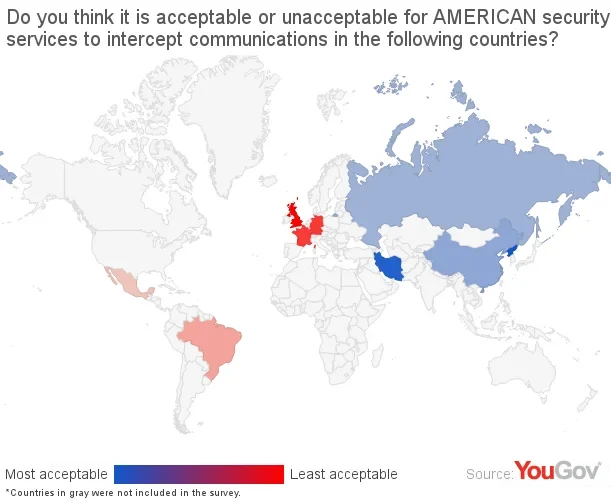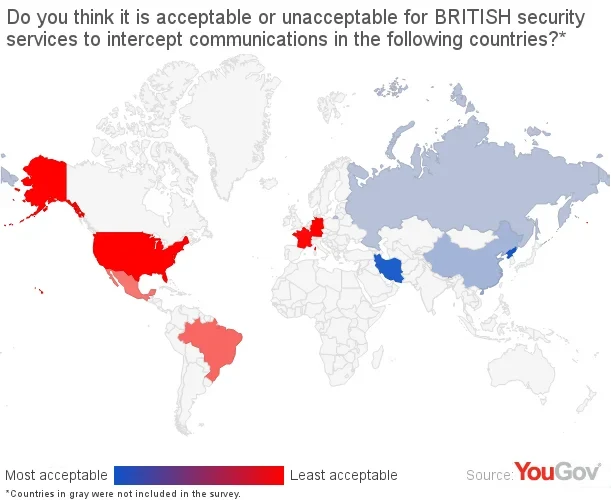The British public accept the monitoring of communications in rogue states like Iran or North Korea, but reject snooping in more friendly territory
The United States has become embroiled in a diplomatic row with its allies over claims that the US National Security Agency (NSA) intercepted communications from 35 world leaders (including German Chancellor Angela Merkel's cell phone), 60 million Spanish citizens (in one month) and a number of French diplomats. While French, German and Spanish leaders have expressed outrage over the allegations, PM David Cameron's reaction has been relatively subdued, and possibly with good reason: unlike France, Germany, or Spain, the UK and the United States are members of an exclusive club of five nations (called the 'Five Eyes') who share intelligence with one another, in turn, have agreed not to spy on each other.
New research by YouGov suggests that if the British people could decide, the club might be widened a bit.
Predictably, British people most widely reject American security services intercepting communications in the UK, with 66% finding it unacceptable and only 17% finding it acceptable. However, snooping in Germany and France is also unacceptable to 60% of the British public, and acceptable to only 21%. On the other hand, more Britons tended to see spying in Russia, China, Iran and North Korea as more acceptable than unacceptable by margins of seven, 10, 30, and 33 points, respectively.

Interestingly, people here hold British security services to almost an identical standard. And despite all of the scrutiny the US has come under over their own snooping habits, British people find it just as unacceptable for Britain to spy on Americans as they do for the French or Germans.

The research suggests that whether a group is perceived to be an acceptable target for spying depends on whether the group in question is seen as friendly or unfriendly, ‘ordinary’ or criminal.
When asked about the acceptability of the US intercepting the communications of world leaders from countries friendly or unfriendly to the United States, the latter is ranked as highly unacceptable (69% to 16% acceptable) and the former mostly acceptable (56% to 27%).
And an even wider gap rests between the acceptability of US snooping with regard to ‘ordinary people outside of the United States’ (71% to 14% acceptable) and ‘people outside of the United States who are suspected of terrorist activities’ (68% to 17% unacceptable).
Following the latest NSA revelations, Germany and France have demanded an agreement that will give them – and eventually other EU member states – priveleges like those granted to members of the 'Five Eyes' club.
Image: Getty







